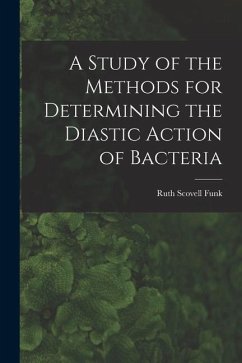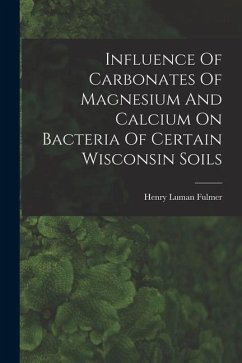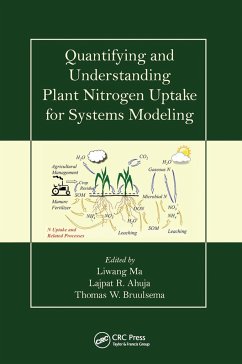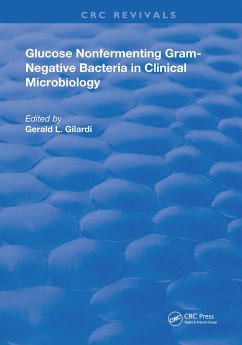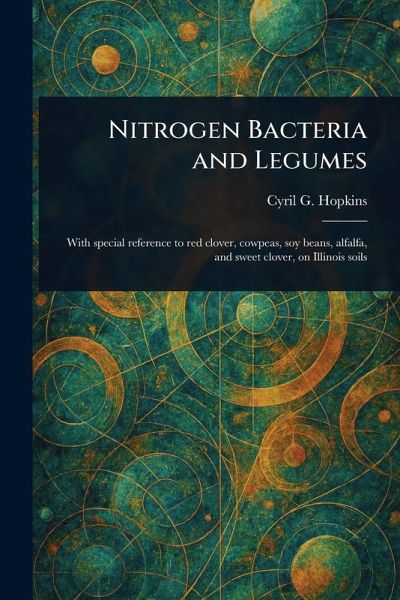
Nitrogen Bacteria and Legumes
Versandkostenfrei!
Versandfertig in über 4 Wochen
14,99 €
inkl. MwSt.

PAYBACK Punkte
7 °P sammeln!
Explore the foundational principles of soil science with Cyril George Hopkins' "University of Illinois Agricultural Experiment Station Bulletin No. 94: Nitrogen Bacteria and Legumes." This meticulously prepared print edition delves into the crucial role of nitrifying bacteria in agriculture, with specific attention to red clover, cowpeas, soybeans, alfalfa, and sweet clover, and their impact on Illinois soils. Hopkins' detailed analysis provides invaluable insights into crop rotation and the symbiotic relationship between legumes and nitrogen bacteria. This bulletin, originally published by th...
Explore the foundational principles of soil science with Cyril George Hopkins' "University of Illinois Agricultural Experiment Station Bulletin No. 94: Nitrogen Bacteria and Legumes." This meticulously prepared print edition delves into the crucial role of nitrifying bacteria in agriculture, with specific attention to red clover, cowpeas, soybeans, alfalfa, and sweet clover, and their impact on Illinois soils. Hopkins' detailed analysis provides invaluable insights into crop rotation and the symbiotic relationship between legumes and nitrogen bacteria. This bulletin, originally published by the University of Illinois, remains a significant contribution to the understanding of soil fertility and sustainable agricultural practices. A cornerstone text for anyone interested in the science of agriculture, environmental science, or the history of microbiology, this book offers timeless knowledge relevant to both historical context and contemporary understanding of soil management. Discover the enduring importance of these natural processes and their application in cultivating healthy and productive land. This work has been selected by scholars as being culturally important, and is part of the knowledge base of civilization as we know it. This work is in the public domain in the United States of America, and possibly other nations. Within the United States, you may freely copy and distribute this work, as no entity (individual or corporate) has a copyright on the body of the work. Scholars believe, and we concur, that this work is important enough to be preserved, reproduced, and made generally available to the public. We appreciate your support of the preservation process, and thank you for being an important part of keeping this knowledge alive and relevant.





![The Spherical Bacteria Cell [microform]: the Constructor of the Earth and Her Life Through the Radioactive Construction of Electro-magnetic Particles Cover The Spherical Bacteria Cell [microform]: the Constructor of the Earth and Her Life Through the Radioactive Construction of Electro-magnetic Particles](https://bilder.buecher.de/produkte/66/66148/66148901n.jpg)
![The Classification and Distribution of the Intestinal Bacteria in Man [microform] Cover The Classification and Distribution of the Intestinal Bacteria in Man [microform]](https://bilder.buecher.de/produkte/66/66170/66170586n.jpg)
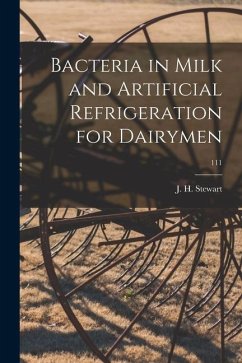
![On the Variability of Bacteria and the Development of Races [microform] Cover On the Variability of Bacteria and the Development of Races [microform]](https://bilder.buecher.de/produkte/65/65591/65591612n.jpg)
